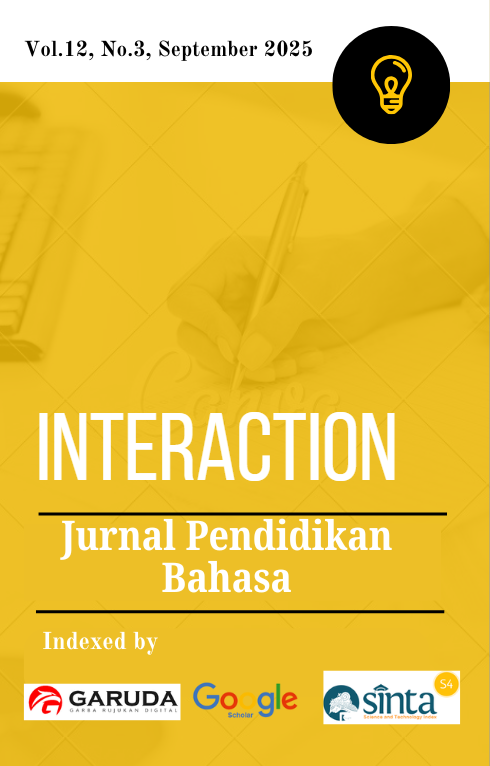Urban and Rural Teachers’ Perceptions of the Implementation of the Merdeka Curriculum: A Case Study of Teachers in West Kalimantan
DOI:
https://doi.org/10.36232/interactionjournal.v12i3.3081Keywords:
Rural and Urban Teachers, The Independent Curriculum, ImplementationAbstract
This study aims to describe the perceptions of rural and urban teachers in West Kalimantan regarding the implementation of the Independent Curriculum (The Merdeka Curriculum) through a case study at SMPN 5 Jelimpo and SMPN 29 Pontianak. The scope of the research covers two schools implementing the Independent Curriculum but located in different contexts, namely a rural and an urban area. The research employs a qualitative approach using observation and interview methods. The data sources are Indonesian language teachers from SMPN 5 Jelimpo and SMPN 29 Pontianak. The data consist of interview results from these teachers. The findings of the study include: (1) Positive Views on the Independent Curriculum, teachers from SMPN 29 Pontianak and SMPN 5 Jelimpo welcomed the policy for its flexibility in supporting student-centered learning; (2) Different Levels of Readiness and Adaptation, SMPN 29 Pontianak showed a more advanced readiness with a "Mandiri Berubah" approach, while SMPN 5 Jelimpo remains in an intensive preparation phase; (3) Teaching Strategies and Teacher Competency Development, both schools rely on various learning resources to enhance teacher competency, with different approaches such as structured training at school and the use of social media; (4) Contextual Curriculum Implementation, SMPN 29 Pontianak emphasizes internal coordination, while SMPN 5 Jelimpo focuses on project-based learning and local wisdom; and (5) Contextual Challenges, urban teachers face internal obstacles like time management, whereas rural teachers face external challenges such as limited infrastructure and resistance from colleagues.








